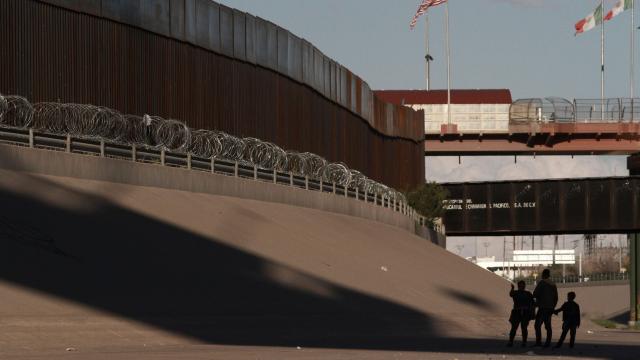Wealthier countries are going to be several years late in delivering their promises to give money to poorer countries to help adjust to the impacts of climate change, the United Nations said Monday. A new report shows where wealthier countries could start finding extra money: their increasingly beefy military budgets.
The conversation around what’s known as the Green Climate Fund has been dragging on for years. Wealthy countries first made the promise in 2009 to start contributing $US100 (A$133) billion in aid each year to developing countries to help them adjust to and prepare for climate change; these countries said they’d reach the full amount they promised by 2020. The presidency for the UN’s upcoming climate change meeting in Glasgow on Monday put forward a plan that, it said, would get the world to that full promised amount — albeit by 2023, three years after the initial target.
The Green Climate Fund has been plagued by issues from the start: The fund has come under fire for mismanagement, while goalposts keep getting moved about what the fund can actually be used for. Most problematically, richer countries (notably the U.S.) have failed to pony up for the GCF at a level commensurate with the climate damage they’ve caused. In September, President Joe Biden said the U.S. would be carving out $US5.7 (A$7.59) billion — a big step up from what the country contributed under former President Donald Trump, when it gave less than France, Germany, Japan or the UK despite being the biggest historical polluter. But Trump can’t be totally blamed for the U.S. being behind; before leaving office, former President Barack Obama managed to deliver just $US1 (A$1.33) billion of the $US3 (A$4) billion he’d promised. The total fair share the U.S. alone should be paying based on GDP, cumulative carbon dioxide emissions, and population, analyses suggest, sits somewhere between $US43 (A$57) and $US50 (A$67) billion per year.
That may seem like a whole lot of money for the U.S. to cough up each year; to be sure, $US100 (A$133) billion isn’t exactly a small number. But for a little bit of context on how wealthier countries are choosing to spend their money, we can look at a new report out on Monday that finds that the world’s largest economies are throwing hundreds of billions of dollars each year into arming their borders. Seven of the world’s largest historic emitters, the report from international nonprofit Transnational Institute finds, spend an average of 2.3 times more on making their border security heavily militarised than they do on helping other countries weather the impacts of climate change. Instead of helping people, the authors say those investments will only increase deaths and violence and do nothing to stem climate migration as extreme weather forces more people out of their homes.
“These countries have built a ‘Climate Wall’ to keep out the consequences of climate change,” the report says, going on to note this tactic “provides booming profits for a border security industry but untold suffering for refugees and migrants who make increasingly dangerous — and frequently deadly — journeys to seek safety in a climate-changed world.”
While the U.S. isn’t the worst offender on the report’s list, it still spends 11 times more on border security. The country plunks down an average of $US19.6 (A$26.12) billion each year for things like drones, facial recognition technology, and the border wall. (The latter of which is very prone to climate change.) The total also includes maintenance and surveillance, and armed border agents. Canada and Australia top the list in inequitable spending. Those countries spent 15 times and 13 times as much on border militarization as climate finance, respectively.
As the report notes, security companies and industries that profit from border security measures (and lobby for increased militarization) also contract out their services to provide security for some of the world’s most powerful oil and gas companies: Lockheed Martin, the aerospace giant that has received billions of dollars in federal contracts over the past decade, also provides security services for Exxon, Shell, and BP. It’s part of a private security contractor industry worth an estimated $US68 (A$90.61) billion.
These numbers illustrate one of the key paradoxes of climate policy. The billions of dollars spent on border security would undoubtedly not be needed if wealthier countries addressed the climate crisis that is increasingly forcing people to leave their homes in the first place. Some of the countries with the world’s lowest historic emissions are also those who are hit the hardest: Somalia, the report says, saw 6% of its total population displaced by climate disaster last year, despite being responsible for just 0.00027% of total global emissions since 1850.
Darkly, climate change is increasingly being used to ramp up militarization, rather than providing an opportunity to step back and evaluate the holistic reasons behind why people are being displaced and how to help them. It’s a grim vision of a future where money that should be given to poorer countries to help mitigate climate disaster is instead given to defence contracting firms so rich countries can harden their borders.
“If there is one conclusion from this shocking report which those at COP26 should draw it is this: if the biggest historic polluters divested — even a little — from border militarization and invested that money into climate financing for the Global South, we could prevent catastrophic human suffering linked to displacement on a huge scale,” Mohamed Adow, the director of Nairobi-based think tank Power Shift Africa, said in a news release on the report.
